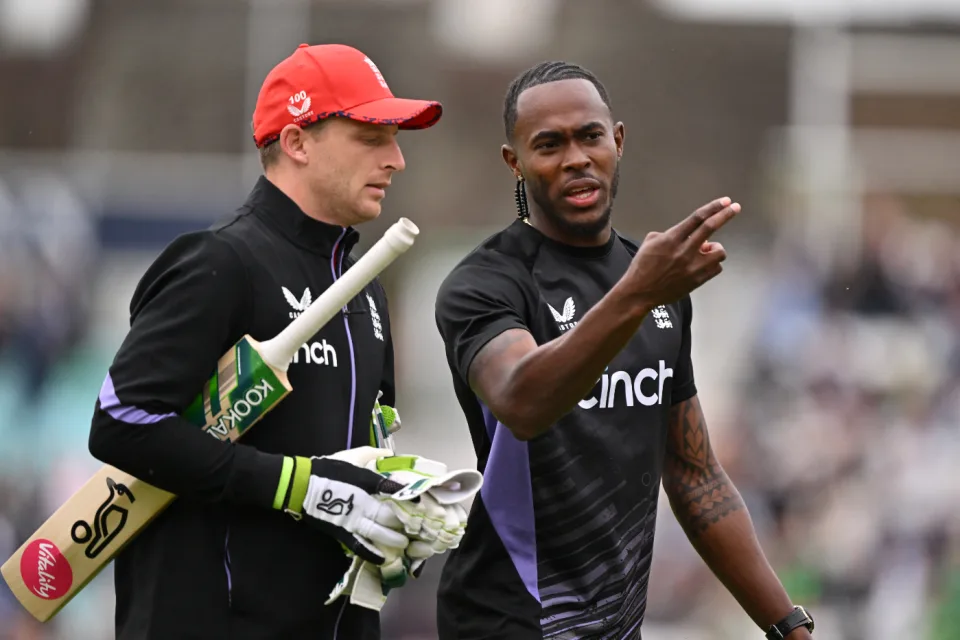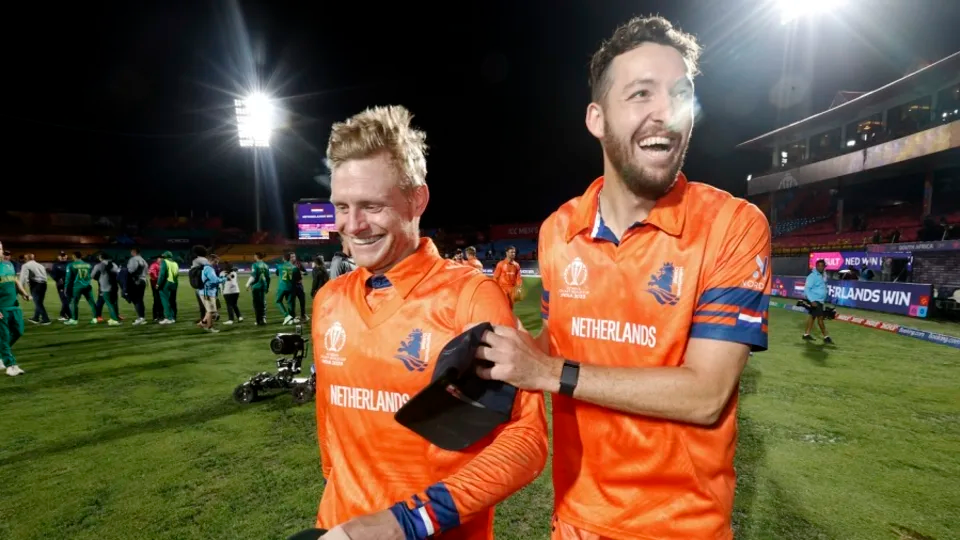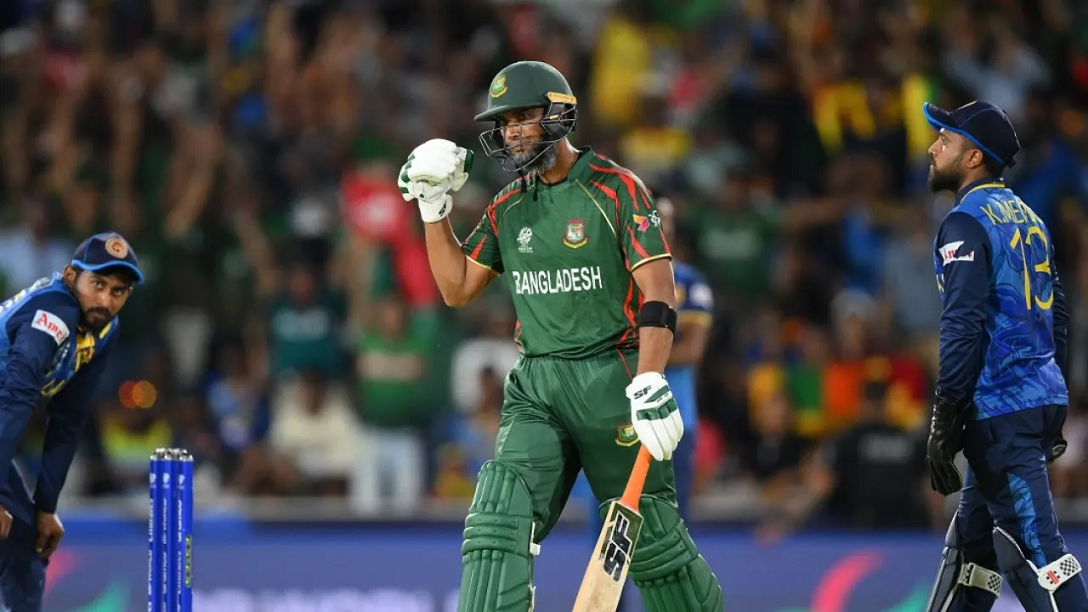Sports
Kiwi teams prevail on first day of round 2

Trans Tasman Super Rugby
by Rajitha Ratwatte
Round two of the Trans-Tasman super rugby tournament had two matches played on Friday night. The first one was the Wellington Hurricanes at home to the Melbourne Rebels who had been thrashed by the Auckland Blues last weekend. The Melbourne team were still missing the services of ace placekicker Reece Hodge and the Wellingtonians still without skipper Aardie Savea with Dan Coles captaining in his stead and Nani Laumape the tough irrepressible center back, in probably his last game of super rugby, as he has signed up with a French club.
The wind always blows in Wellington and the home team won the toss and chose to play into the wind for the first half and the visitors kicked off. A long opening sequence ended with a kickable penalty being awarded to the Hurricanes, but the touch option was chosen. The Melbourne team was defending well with the backs coming up together and tacking hard. The forwards even turned over the ball from two rucks effectively. The first scrum was six minutes into the game and the Melbourne pack did a much better job than the previous week, holding up well. A series of penalties were awarded to the ‘Canes as the Melbourne line was found offside for coming up too fast in their over-eagerness to rectify last week’s errors. All possible three pointers were disregarded as the Wellington boys had bigger things in mind. In the 14th minute referee Graham Cooper had enough and dished out a yellow card to the Rebels tight-head prop, (probably for the sins of his backs!) and this, of course, meant a one-man advantage to the ‘Canes for 10 minutes. Julian Savea playing on the wing, made an interception in the 19th minute and ran around 90 meters, and scored under the posts, absolutely against the run of play. The conversion was not a problem 7– 0 to the Hurricanes. Around two minutes later a penalty on the opposition 22, slightly left of the posts was taken, partly to eat up time until the teams were back to full strength and Matt Toomua the Melbourne skipper slotted it, taking the score to 7 – 3. In the 24th minute Nani Laumape who had been running hard at the opposition from no 12, finally broke through, offloaded beautifully to his scrum-half Billy Proctor who scored under the posts. Seven more points was a formality and the score read 14 – 3 to the Hurricanes. The Melbourne team was playing well stringing together 13 phases together and even winning a scrum penalty all to no avail. An almost certain three pointer was disregarded for touch but the Wellington defence which was found wanting last week, held its own and half-time was reached with no change in the score 14 -3.
The Melbourne Rebels scored first in the second half with their first try in this tournament coming from multiple phases and culminating in Michael Wells scoring far left. The Kick was missed, and the score read 14 – 8 the rebels were catching up and playing well. At this stage, Wes Goosen playing on the blindside wing for the Hurricanes beat nine defenders on the run and was brought up just short of the line. 54 minutes into the game ‘Canes half-back Proctor was back in the game with a great run ending with a pass to the Julian Savea (also known as the BUS) who powered his way with afterburners on, ran 20 meters along the touchline, and cut inside to score under the posts. Easy work for Jordie Barret to add the extra points, 21 – 8, and the Hurricanes looking ominous. The 59th minute saw the Rebels score another try far left Through Campbell Magney, but Matt Toomua’s kick smacked the left upright and didn’t go over; 21 – 13. In the 63rd minute, a kickable penalty was not taken by the Hurricanes with the touch option preferred. This was justified two minutes later with a perfectly weighted cross kick from Oban Ledger wearing the no10 jersey falling into the hands of his winger Wes Goosen who dotted down in the extreme left corner with consummate ease. Wes Goosen getting rewarded for his efforts and Oban Ledger succeeding in his second attempt at a cross-kick. His earlier attempt in the first half eluding the arms of Julian Savea on the right-wing. A great conversion by Jordie Barret saw the score proceed to 28 – 13 for the Hurricanes. In the 69th minute a kickable penalty was disregarded, and a quick tap taken by the Melbourne side and that hard-tackling tough winger, Marika Korabeti was stopped inches from the line by the Wellington defence. Two minutes later Wellington repeated the quick tap, and this time Laumape again scorched his way over 70 meters or so and passed to Asafu Omona who had come in off the bench to replace his skipper Dan Coles at hooker. Tackling this burly young hooker has been compared to “trying to tackle a cannonball” and so it was with the third try being scored and a bonus point achieved for the Hurricanes. Oban Ledger who had taken over the kicking duties now that Jordie Barret had completed his stint of duty was able to add the extra points and the full-time score read 35 – 13 to the hosts the Wellington Hurricanes.
Friday’s second game was in Perth with the Western Force who had lost by just one point due to a missed kick at goal to the Waikato Chiefs last week, hosting the Otago Highlanders. The experts were calling a win for the Force and the possibility of the first win for an Australian side in the tournament. Aaron Smith the captain of the Highlanders and the incumbent All Black halfback, was playing his 160th Super rugby game.
The Western Force kicked off and the opening lasted for almost five minutes and ended with the first scrum. Billy Harmon won a turnover penalty for the Highlanders and in the 11th minute, Aaron Smith jinked his way through a few defenders and found that great finisher Jonah Nareki waiting to support him and score under the posts. 7 – 0 to the ‘Landers. A basic mistake from Domingo Miotti the Argentinian international playing for the Western Force shortly thereafter, saw the ball being kicked out to touch after it had been carried back into the 22. The Highlanders regained the territory and in the 21st minute won themselves a kickable penalty off a scrum. The possible three points were disregarded, and loosehead prop Aden Johnston powered his way over the line scoring far left. Mitch Hunt playing at no10 for the Highlanders missed the kick and the score progressed to 12 – 0. The Force earned themselves a scrum penalty in the 27th minute and Miotti made short work of it taking the score to 12 – 3. In the 30th minute, the ‘Landers regained the three points with the Force conceding a defensive penalty right in front of their posts, 15 – 3. We were into the phase of play when an interesting statistic showed that the Highlanders had scored 11 tries; that was between the 20th minute and half time of a game. Aaron Smith decided to oblige, initiating a break away from a maul with perfect timing and sending Scott Gregory (ponytail and all) over the line scoring mid-right. Smith called for the ball when he spotted a gap in front of Gregory and passed directly to him making the job easy. Hunt missed the kick rather uncharacteristically and the score read 20 – 3. Two minutes from halftime Kubelli playing on the wing for the Western Force scored under the posts and after checking for an earlier knock-on the try was awarded. Seven points were not a problem and the halftime score read 20 – 10.
The second half began with both teams disregarding kickable penalties for territory and the plan to go for tries pretty evident. The Highlanders defended grimly and determinedly as is the penchant of hardworking Kiwi sides and managed to keep their line uncrossed. Shannon Frazelle ,who is always at the forefront in the no seven jersey won a defensive penalty for his team and saved the day. In the 59th minute, Greg Holmes of the Western Force was yellow-carded for a high tackle and one minute later the Highlanders scored. It was Aaron Smith again who passed perfectly to his outside backs and enable Scott Gregory to go over for his second try in the extreme left corner. The kick proved too hard for Mitch Hunt who was looking a bit shaky having made some rather basic and unforced errors earlier in the game. 25 – 10 to the Highlanders and a Bonus point insight. It was not to be, however, with the Force managing to score another try through their substitute prop Wagner who went over mid-right after a series of penalties conceded by the Highlanders. The conversion was missed but the Bonus point was forfeited and the final score read 25 – 15 to the Otago Highlanders.
supersubsports@gmail.com
Sports
England face Australia in the battle of champions

The first truly heavyweight clash of this expanded T20 World Cup format comes freighted with both history and subplots. A rematch of the 2010 World T20 final at Kensington Oval, the match pits Jos Buttler’s defending champions – who are aiming to become the first team to retain the trophy – against the Australian winning machine, victors at the 2021 edition and current world title-holders in Test and ODI cricket. And that’s before you throw in the Ashes for afters.
Already there is added pressure on England, after the rain in Bridgetown led to a share of the points in their opener against Scotland (and that having conceded 90 runs from 10 overs without taking a wicket in a tepid bowling display). Lose to their oldest rivals and it will leave their Super 8 prospects open to being waylaid by the perils of net run-rate calculations, or worse.
The Scotland match was the third abandonment in five suffered by England, after a rain-affected home series against Pakistan, which has clearly hampered their readiness for this campaign after almost six months without playing T20 together. It does not take much for a side to click in this format – and England looked in decent shape when they did get on the field against Pakistan – but Buttler will be anxious for things to go their way on Saturday, if only to avoid further questions referencing the team’s disastrous ODI World Cup defence last year.
Australia, under the laidback leadership of Mitchell Marsh would love nothing more than to add to the English sense of jeopardy – having helped bundle them out of the tournament in India on the way to taking the crown. Their head to head record is less impressive in T20 however, with England having won six of the last seven completed encounters, as well as that 2010 final.
Despite a wobble with the bat, Australia avoided mishap against Oman earlier in the week, the experience of David Warner and Marcus Stoinis shining through in difficult batting conditions. Surfaces in the Caribbean – not to mention those games staged in the USA – have already had teams scratching their heads; rather than the “slug-fest” England had prepared for, following a high-scoring tour of the Caribbean in December, it looks as if boxing smart may be the way to go.
Speaking of Warner, this could be the last time he faces up against England in national colours – and another match-winning contribution would likely reduce the chances of them meeting again in the knockouts. On the other side of the card is Jofra Archer, fresh from an emotional maiden outing at Kensington Oval and ready to take on Australia for the first time in any format since 2020. Can Mark Wood fire up England’s campaign, as he did during last summer’s Ashes? Will Pat Cummins be back to harass the old enemy once again? Seconds out, it’s almost time to rumble.
Cummins is set to return after being rested for the Oman game, which saw Mitchell Starc leave the field with cramp. Starc is understood to be fine and could keep his place – which would likely see Nathan Ellis miss out. Marsh is still not fit to bowl, with Australia likely to continue with the allrounder combination of Stoinis and Maxwell to give them cover.
Australia (probable XI): David Warner, Travis Head, Mitchell Marsh (capt), Glenn Maxwell, Marcus Stoinis, Josh Inglis (wk), Tim David, Pat Cummins, Nathan Ellis/Mitchell Starc, Adam Zampa, Josh Hazlewood
The one change England may consider is Reece Topley coming in for Wood, with the expectation that there will be some rotation among the seamers through the course of the tournament.
England (probable XI): Phil Salt, Jos Buttler (capt & wk), Will Jacks, Jonny Bairstow, Harry Brook, Liam Livingstone, Moeen Ali, Chris Jordan, Jofra Archer, Adil Rashid, Reece Topley/Mark Wood
[Cricinfo]
Sports
South Africa up against their bogey team in batter-unfriendly New York

Once is coincidence, twice is a clue, and three times is proof.
To paraphrase Agatha Christie, that is the narrative around South Africa’s meeting with Netherlands at this T20 World Cup.
The Dutch beat South Africa at the 2022 tournament and ended their semi-final hopes in a match where South Africa appeared to be sleep walking, and then beat them again at the 2023 ODI World Cup, where they exposed South Africa’s vulnerability in the chase. If they to do the treble, not only will Netherlands take the lead in Group D, but they will offer conclusive evidence of the threat they pose to Full Members, especially South Africa.
Of course, it will take some doing after South Africa’s opening performance against Sri Lanka, where they reduced their opposition to their lowest T20I total and chased it down in fairly straightforward fashion thanks to the most stable middle-order of their white-ball era. In Aiden Markram, Tristan Stubbs, Heinrich Klaasen and David Miller, South Africa have bankers and big-hitters and, for this match, they also have the advantage of experience. They’ve already played at Eisenhower Park, and have first-hand knowledge that run-scoring doesn’t come easily;Klassen said they are prepared to use their “cricket brains” and play “smarter cricket”.
But the conditions could be good news for Netherlands, who are not naturally a line-up of big hitters and build their innings on a foundation of turning ones into twos. In other words, they tend to take a slightly more conservative approach to batting, which may work well here, but they’ll be wary of the uneven bounce of the surface and will have to come up with plans to counterattack especially against South Africa’s seamers. Their own bowlers were exemplary in Dallas and will look to build on that performance against a line-up that will likely be more proactive than Nepal’s, but who they have managed to keep quiet not once, but twice in the past. Third time’s the charm, they say.
Anrich Nortje’s stunning return to form against Sri Lanka means South Africa may not have to tinker with the bowling combination, and Gerald Coetzee and Tabraiz Shamsi may have to wait their turns to get a game. The batting line-up should be unchanged, with no space for Ryan Rickelton yet.
South Africa: Quinton de Kock (wk), Reeza Hendricks, Aiden Markam, Tristan Stubbs, Heinrich Klaasen (wk), David Miller, Marco Jansen, Keshav Maharaj, Kagiso Rabada, Ottneil Baartman, Anrich Nortje
Conditions in New York may tempt Netherlands to include an extra seamer and they have Kyle Klein in their squad. But it could come at the expense of a shortened batting line-up and they may not want to risk that.
Netherlands: Michael Levitt, Max O’Dowd, Vikramjit Singh, Sybrand Engelbrecht, Scott Edwards (capt, wk), Bas de Leede, Teja Nidamanuru, Logan van Beek, Tim Pringle, Paul van Meekeren, Vivian Kingma
[Cricinfo]
Latest News
Mustafizur, Rishad, Hridoy dazzle in Bangladesh’s tight two-wicket win over Sri Lanka

Nuwan Thushara’s last over brought Sri Lanka screaming back into the match,as he first bowled Rishad Hossain, and then nailed Taskin Ahmed in front of the stumps with a pinpoint swinging yorker. This left Bangladesh eight wickets down, with 12 runs still to get.
However, the experienced Mahmudullah was at the crease for Bangladesh, and despite some further nervy moments, pushed Bangladesh across the line off the last ball of the 19th over.
But this was a match chiefly decided by Bangladesh’s own outstanding bowling. Mustafizur Rahman was the best among them, using shorter lengths and his cutters efficiently, to claim figures of 3 for 17. Rishad Hossain’s three-for through the middle overs also kept Sri Lanka quiet.
Mustafizur was instrumental in Sri Lanka’s downward spiral through the middle overs, which culminated in a crash-and-burn end. Ultimately, their inability to find boundaries, or even rotate strike against good Bangladesh bowling resulted in their downfall. A score of 125 for 9 always seemed poor on a decent pitch, even if their bowlers made a match of it in the end.
Brief scores:
Bangladesh 125 for 8 in 19 overs (Towhid Hridoy 40, Litton Das 36; Dhanajaya de Silva 1-11, Nuwan Thushara 4-18, Wanidu Hasaranga 2-32, Matheesha Pathirana 1-27) beat Sri Lanka124 for 9 in 20 overs (Pathum Nissanka 47, Dhananjaya de Silva 21; Tanzim Hasan Sakib 1-24, Taskin Ahmed 2-25, Mustafizur Rahman 3-17, Rishad Hossain 3-22) by two wickets
[Cricinfo]












